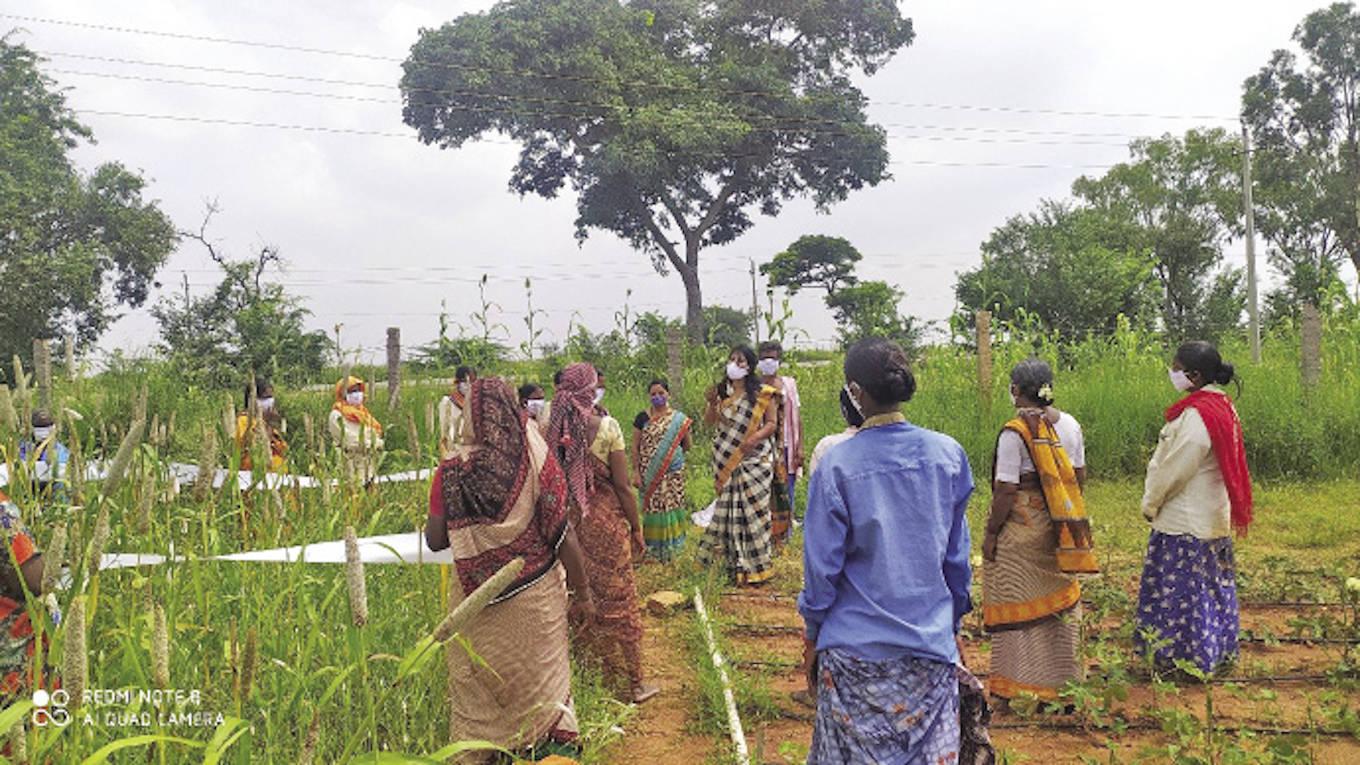Agriculture accounts for a quarter of the Indian economy, employing over 60 per cent of the labour force. Geographical diversity across the length and breadth of the country and the diverse agro-climatic zones provide opportunity to grow a wide range of crops. Arable land being finite, achieving food security to meet the demands of a growing population means increase in crop production and productivity. In alignment with SDG-1 (‘No poverty’), Bayer Foundation India has undertaken the project to enable small holder farmers maximise output and enhance farm income. The key objectives of the project are to introduce farmers to advanced technologies and better hybrids for improving crop productivity; and also train farmers on recommended agronomy practices and effective on-farm operations through demonstration plots. The project implemented during kharif and rabi season 2020 was spread across 450 blocks in 90 districts covering 18 states to benefit over 150,000 small holder farmers. Its major focus was on rice, corn, pearl millet and an array of vegetables (tomato, hot pepper, cabbage, cauliflower, beans). Given the spread of locations, collaborations and partnerships were the key to achieving the set objectives. The Foundation employs multiple models of implementation to ensure last mile delivery. The three models were: work directly with the NGO partners for farmer mobilisation and training; engage an implementing agency to impart the trainings, while the NGOs extend support to mobilise the farmers; and hire field staff to impart training, while the NGOs extend support to mobilise the farmers. In partnership with 34 NGOs and an implementing agency, knowledge on recommended agronomy practices and advanced technologies was transferred to the farmers. Of the 18 states, eleven states contributed to over 70 per cent of the beneficiary base in the project. Through 18 master training sessions, over 450 staff of NGO partners were equipped with appropriate information on the technology and recommended agronomy practices for the crops. Trainings also encompassed on-farm safety, safe use of chemicals, stewardship practices and reinforcing Covid-appropriate behaviour, providing a complete package to the farmers. The master trainers were provided guidance to choose appropriate demonstration plots. Across the four crops, over 10,000 demonstration plots were identified. Field days conducted for over 73,000 farmers validated the importance of following the recommended practices. The RoI (return on investment) was demonstrated during the harvest days conducted for over 48,000 farmers. Throughout the cropping season, agronomy advisory was provided to the farmers. The components of the project were designed such that farmers are equipped to adopt the appropriate practices season on season, ensuring sustainability and resulting in improved on-farm productivity translating to enhanced incomes. While the pandemic limited project monitoring and farmer reach, it provided an opportunity for innovation in the form of digital technology. A mobile application was developed in partnership with a third party organisation, for gathering data for baseline studies as well as for monitoring the project. Data points on demographic data of farmers, plot details, agronomy practices, go-to market strategy served as a baseline. Throughout the cropping season, the field staff regularly uploaded photographs of the demonstration plots and the trainings imparted through field days and harvest days. Geo-tagging feature integrated in the app ensured data veracity. While the field staff recorded data in the mobile application, a web-based version was made available to the programme managers to monitor the project progress, create real time dashboards and address gaps as appropriate.
-

Bayer Foundation enables small holder farmers maximise output and enhance income

































